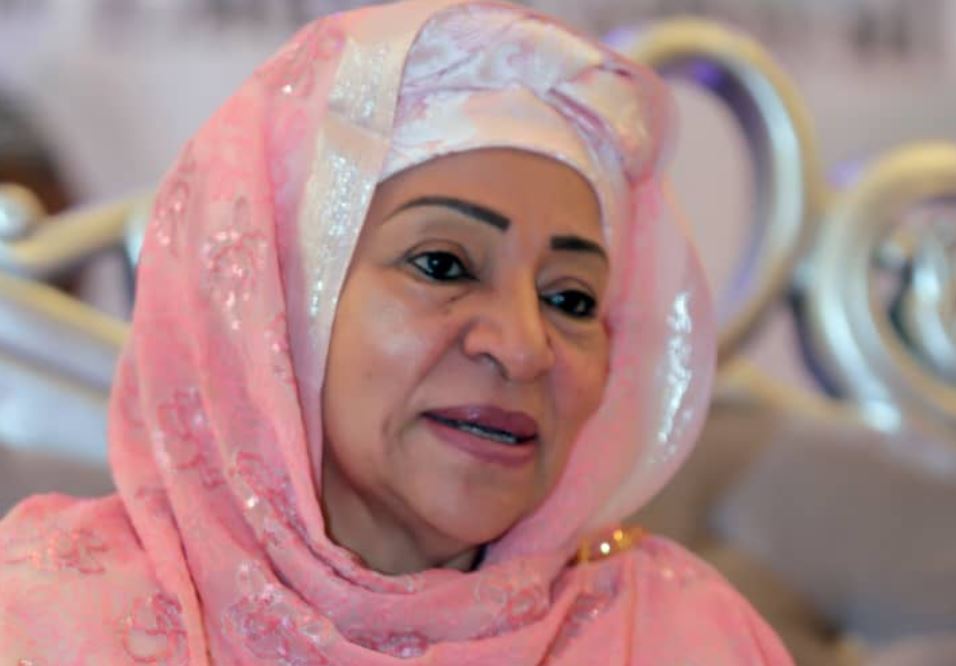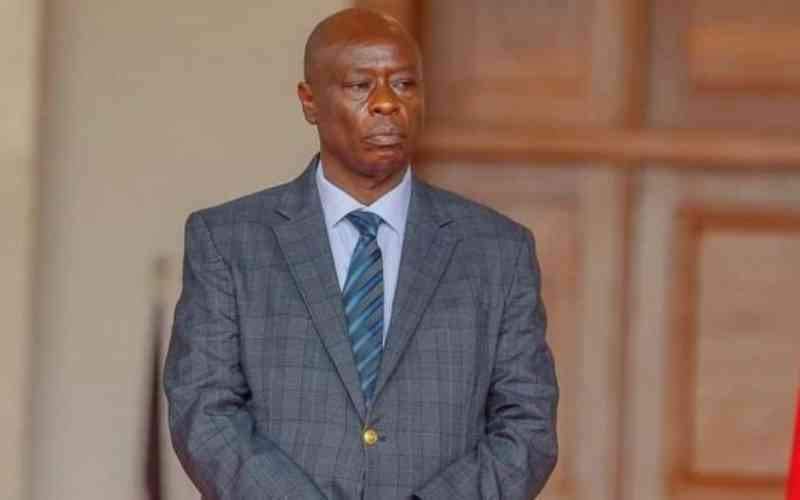
As the U.S. abandons its multilateral commitments under President Donald Trump, other countries have been left trying to pick up the pieces.
At last week’s Hamburg Sustainability Conference,
Against the backdrop of a new German government headed by Chancellor Friedrich Merz, the country’s vice chancellor and finance minister, Lars Klingbeil, gave a full-throated defense of multilateralism, including the need to “revive” the 2030 U.N. Sustainable Development Goals.
he declared in his keynote at the conference, which drew 1,600 participants over two days to the city of Hamburg. “After all, we have plenty of interests in common, such as fighting climate change, displacement and expulsion, inequality, hunger, and poverty, among others. A rules-based international order has the best chances of success for the largest number of countries.”
As Germany makes a bid to fill the international leadership vacuum left by the United States, Klingbeil announced plans for a n that positions in an increasingly fragmented world.
“The challenge for the next decades will not be met by an adversary system of winners and losers,” Klingbeil said.
The commission will develop “” — acknowledging that Western dominance is ending and Germany intends to help shape what comes next. Germany’s broader strategy includes advancing the G20 Compact with Africa, promoting international tax cooperation, and backing the European Union’s “Global Gateway” initiative.
“ of the countries of the global south and the global north,” Klingbeil said.
The dismantling of USAID has left Germany the world’s largest individual donor of official development assistance in absolute terms. But Klingbeil’s announcement also signals Germany’s readiness to champion the multilateral institutions and partnerships that Washington and London have increasingly abandoned.
The initiative represents a . The question now is whether low- and middle-income nations see the commission as a genuine partnership — or just another northern-led initiative.
: Is Germany the next leader in ODA, and how will it spend its money? (Pro)
At the conference, German development agency GIZ also pushed back against the assumption that countries must choose between pursuing national interests or upholding values in international affairs.
“We can pursue our interest to save global public goods, the nature of our planet, the oceans. But at the same time, this is part of our values,” GIZ Managing Director Ingrid-Gabriela Hoven told Devex President and Editor-in-Chief Raj Kumar.
Hoven predicted that the 2020s would see more and more countriesopenly acknowledge national interests in development work — a shift she considers inevitable and potentially healthy if managed correctly. “We are changing the narrative,” she said.
But Germany, like some other donors, including the EU, is trying to walk the line. Hoven adopted by other powers, pointing to economic analysis mentioned by UNCTAD Secretary-General Rebeca Grynspan at the conference, showing that 10% tariff increases proposed by the Trump administration could reduce some countries’ international trade participation by 20%. “If we act [only] interest-oriented, and we do this in the selfish, purely transactional way, the selfishness is going to haunt us later on.”
US tariffs threaten to push debt-distressed nations closer to the brink
European aid is both ‘self-interested’ and ‘generous,’ says top official

Multilateral development banks cas formerly generous donors slash their budgets, according to Carlo Monticelli, the governor of the Council of Europe Development Bank.
“We have to be clear … that can be obtained by the MDBs without increasing the capital endowment,” Monticelli told Raj. “This is not to get off the hook, but just to be fully realistic and avoid generating the expectation that the MDBs can by themselves make good for quite important resource cuts.”
As Monticelli pointed out, : Their trust funds and cheap lending programs both depend on fresh donor cash, which is now drying up. As chair of the Heads of MDBs Group this year, he’s pushing efficiency reforms, including agreements that allow banks to share project reviews rather than duplicating each other’s work. It may sound technical, but the potential cost savings are huge.
The bigger test is . Ten years after the “billions to trillions” slogan emerged from Addis Ababa at the Third International Conference on Financing for Development, Monticelli borrowed an advertising phrase for his verdict on private sector engagement: “Just do it.”
Can multilateral development banks step up to meet the moment? (Pro)
+ Curious about the insights that drive global development? Experience the power of Devex Pro with a 15-day free trial. Explore expert analyses, unlock hidden funding opportunities, connect with key players at exclusive events, and access a wealth of knowledge you won't find anywhere else.
The Spanish Agency for International Development Cooperation, or AECID, has transformed into a connector of partnerships rather than a traditional project implementer, , according to its director.
Antón Leis García told Devex that linking countries, multilateral organizations, private investors, and civil society, rather than operating in isolation. The agency has and added nearly €400 million in annual lending capacity.
Spain is, of course, about to take center stage as Sevilla hosts the Fourth International Conference on Financing for Development, or FfD4. García expects the summit to showcase new partnerships blurring conventional north-south donor divisions.
What is Financing for Development 4 and why is it a big deal? (Pro)
Calls for overhaul of global debt architecture intensify ahead of FfD4 (Pro)
. Check out our upcoming events:
On June 13, we’ll have a discussion with the CEO of Allied Climate Partners, Ahmed Saeed, who will explore what’s really blocking climate investment at scale. Save your spot now.
Join us on June 16 to hear from four CEOs who’ve navigated major mergers and acquisitions, and reveal the calculus behind consolidation in today's market.
And finally, on June 18, we’ll have a Pro briefing with Leslie Maasdorp, the CEO of British International Investment. Register now.
If you’re heading to Sevilla for FfD4, come to Casa Devex — an exclusive gathering space for FfD4 delegates featuring nightly networking, journalist-led briefings, and partner dinners. Request your invitation or learn more about partnering with us.
Meanwhile, Norway's development agency has under its outgoing chief. Director-General Bård Vegar Solhjell told Devex that NORAD’s five-year reform will focus on cash transfers, education system partnerships, and flexible contracting that allow the agency to act like a “financial manager,” rather than a traditional donor. The overhaul also brought humanitarian and development funding together under NORAD's umbrella.
“We are trying to think in a more strategic way,” Solhjell said of the 320-person agency, describing targeting entire systems. NORAD now demands long-term results from partners, with some pay-for-performance contracts in areas such as global health and forestry.
The agency has also dramatically expanded cash transfers — a move based on effectiveness data across poverty reduction and climate adaptation. And rather than direct local contracting, NORAD selectively partners with organizations skilled in localization to maximize impact given its limited resources.
Solhjell is leaving his role this month to become CEO of Renewable Norway, though he’s also still a candidate to lead the United Nations Development Programme. His departure creates succession uncertainty at the agency, but Solhjell still highlighted. When pressed about continuity, he stressed that Norway’s development assistance represents “a resource for us in global politics” — strategic value even as political support for development wavers.
How Norway’s DFI uses technical assistance — and how to engage (Pro)

Global north countries weren’t the only ones speaking out at the Hamburg conference. Maropene Ramokgopa, South Africa’s minister in the presidency for planning, monitoring and evaluation, spoke about the withdrawal of support from the U.S. global AIDS initiative PEPFAR and how it’s hit remote areas hardest — such as the Eastern Cape, where funding previously reached communities with poor infrastructure and limited health care access.
HIV patients in South Africa are now traveling far longer distances for lifesaving medication, while health care workers lose their jobs. U.S. funding cuts under Trump’s “America First” agenda .
The cuts were “so immediate” that they “didn’t give us an opportunity to actually look at other alternatives,” Ramokgopa told Devex. While “people won’t die immediately," she warned that the disruptionas families strain their resources to travel for treatment.
South Africa's finance minister has implemented emergency bridging measures while seeking new international partners, but Ramokgopa said the crisis exposes . She called for , noting that Africa loses $90 billion annually to illicit financial flows — money that could fund domestic health programs instead of relying on donors whose priorities can shift overnight.
“We cannot destroy what has been rebuilt for 50 years,” she said, referring to multilateral cooperation frameworks that have governed international development aid since the post-WWII era. , she warned.
‘How did we get here?’ — African health experts on ending aid dependence
The U.N.’s housing agency is betting its future on tackling what its chief calls as cities prepare for an unprecedented population surge.
UN-Habitat Executive Director Anacláudia Rossbach told Devex that the agency’s new 2026-2029 strategic plan narrows the focus to “housing, land, and basic services” — returning to its original mandate as urbanization accelerates globally.
More than half the world already lives in cities, and that is. “We're talking about hundreds of millions coming to cities that are already facing major infrastructure gaps,” Rossbach said, pointing to African cities where 50% to 80% of residents live informally.
Rossbach rejected one-size-fits-all approaches to informal settlements, advocating for community-specific solutions rather than blanket relocation or upgrade strategies. she explained, noting some settlements must move from disaster-prone areas while others can take advantage of existing community investments.
The strategic shift comes as UN-Habitat positions itself as the system's housing specialist while Germany — one of its strongest supporters — launches a new government with fresh development priorities. Rossbach’s focus on core housing mandates reflects a bet that specialized U.N. agencies may weather current budget pressures better than those with sprawling, overlapping missions.











